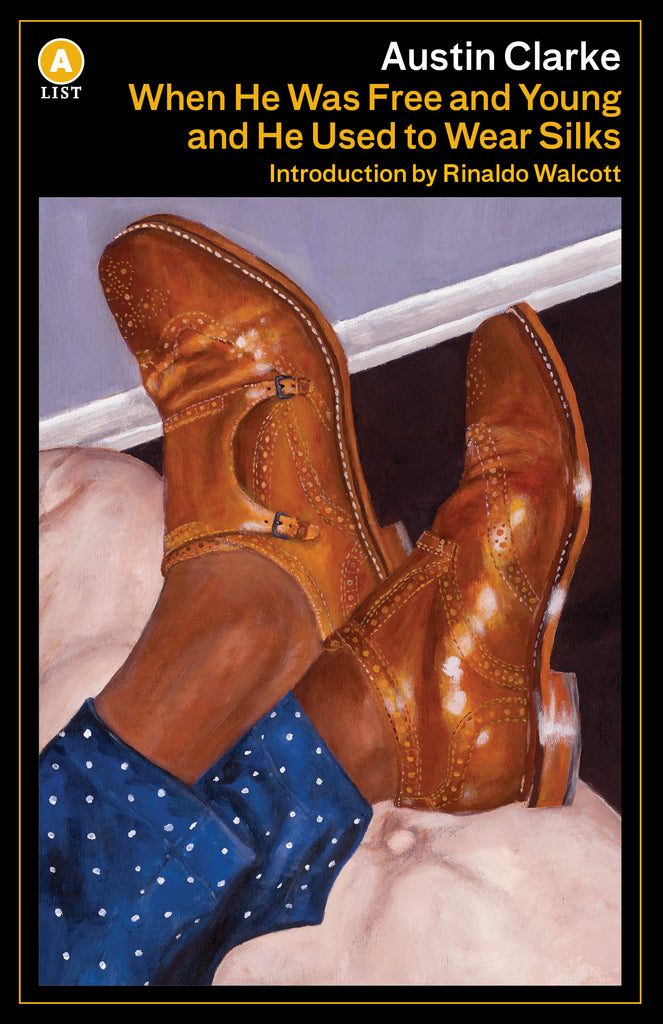Now available after over four decades, the first collection of short fiction from bestselling author and Barbadian-born Canadian luminary Austin Clarke — winner of the Scotiabank Giller Prize, the Commonwealth Writers’ Prize, and the Trillium Book Award for his novel The Polished Hoe — is a vital, lyrical, and provocative exploration of the Black immigrant experience in Canada.
Originally issued in 1971, Austin Clarke’s first published collection of eleven remarkable stories showcases his groundbreaking approach to chronicling the Caribbean diaspora experience in Canada. Characters move through the mire of working life, of establishing a home for themselves, of reconciling with what and who they left behind — all the while contending with a place in which their bone-chilling reception is both social and atmospheric. In lyrical, often racy, and wholly unforgettable prose, Clarke portrays a set of provocative, scintillating portraits of the psychological realities faced by people of colour in a society so often lauded for its geniality and openness.
Now available after over four decades, the first collection of short fiction from bestselling author and Barbadian-born Canadian luminary Austin Clarke — winner of the Scotiabank Giller Prize, the Commonwealth Writers’ Prize, and the Trillium Book Award for his novel The Polished Hoe — is a vital, lyrical, and provocative exploration of the Black immigrant experience in Canada.
Originally issued in 1971, Austin Clarke’s first published collection of eleven remarkable stories showcases his groundbreaking approach to chronicling the Caribbean diaspora experience in Canada. Characters move through the mire of working life, of establishing a home for themselves, of reconciling with what and who they left behind — all the while contending with a place in which their bone-chilling reception is both social and atmospheric. In lyrical, often racy, and wholly unforgettable prose, Clarke portrays a set of provocative, scintillating portraits of the psychological realities faced by people of colour in a society so often lauded for its geniality and openness.
| Published By | House of Anansi Press Inc — Oct 6, 2020 |
| Specifications | 176 pages | 5.5 in x 8.5 in |
| Keywords | bipoc; black culture; barbados; immigration; racism; award winning author; black lives matter; identity; white society; colonialism; james baldwin; malcolm x; harlem; canada's angriest black man; canlit; short fiction; black author; immigrant community; introduction; giller prize; martin luther king jr. achievement award; no pain like this body harold sonny ladoo; heads of the coloured people; columbus and the fat lady matt cohen; collectors edition; |
|
Supporting Resources
(select item to download) |
Excerpt |
| Written By |
AUSTIN CLARKE (1934–2016) was one of Canada’s foremost authors, whose work includes ten novels, six short-story collections, three memoirs, and two collections of poetry. His novel The Polished Hoe won the 2002 Giller Prize. Clarke was appointed to the Order of Canada, held four honorary doctorates, and was awarded the Commonwealth Writers’ Prize, the W. O. Mitchell Prize, the Casa de las Américas Prize, and the Martin Luther King Jr. Award for Excellence in Writing, among others. In his fifty-year career he worked as a journalist, a professor, and a cultural attaché in Washington, D.C. |
| Written By |
|
AUSTIN CLARKE (1934–2016) was one of Canada’s foremost authors, whose work includes ten novels, six short-story collections, three memoirs, and two collections of poetry. His novel The Polished Hoe won the 2002 Giller Prize. Clarke was appointed to the Order of Canada, held four honorary doctorates, and was awarded the Commonwealth Writers’ Prize, the W. O. Mitchell Prize, the Casa de las Américas Prize, and the Martin Luther King Jr. Award for Excellence in Writing, among others. In his fifty-year career he worked as a journalist, a professor, and a cultural attaché in Washington, D.C. |
“Tremendously versatile in what he expresses, and exhilarating to read.” — Globe and Mail
“Powerful and probing. Situations may be cruel, reactions vulgar, but the vitality of the characters is mirrored by the style which shapes and moulds and becomes, from time to time, the theme itself.” — London Free Press
“Funny, sad, boisterous, virile, vigorous.” — Queen’s Quarterly
“Gives a convincing and compassionate picture of the life of these immigrants in Toronto set against the varied backgrounds of their West Indian life.” — Windsor Star

